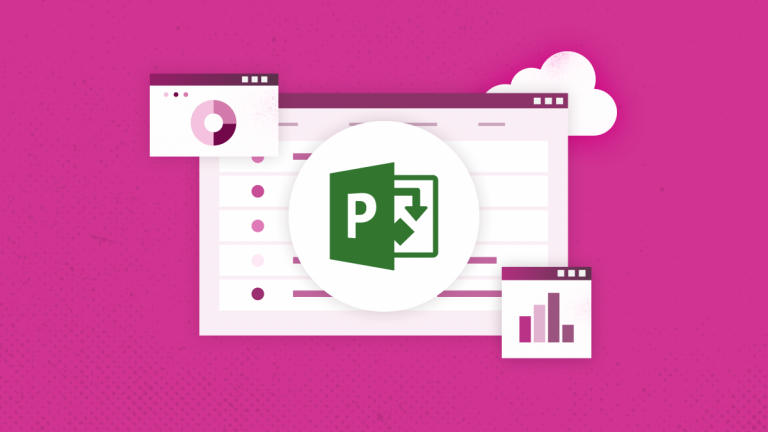
Anna Shalomova
PPM Consultant
The budget is a detailed plan of the organization’s activities, aimed at achieving the goals of the organization for the near future.
Project budget planning is an assessment of the organization’s goal regarding resources and their availability. Planning of everything and anything within the project is linked to financial resources.
Budgeting is a process of coordinated planning and management of an organization’s activities using indicators that help determine the contribution of each unit and manager to achieving goals.
- Strategic planning is for the long term. It involves the formulation of objectives, scope, and general quantitative landmarks.
- Tactical planning is carried out in medium terms. It determines the resources that the company needs to enter the selected strategic level. Usually carried out in the form of a business plan.
- Operational planning covers the current activities of the enterprise, carried out in the form of budgeting.
Budgeting Functions
- A budget is a tool for current planning. It indicates ways of using available resources, considering market opportunities. In the process of developing budgets, it is necessary to foresee possible problems and ways to solve them.
- Budget is a means of monitoring and evaluating performance. Financial control and assessment of the organization’s performance are based on a comparison of the achieved and planned indicators.
- Budgets give criteria for evaluating the work of managers. The components of the budget define the responsibility of managers.
- Budget is a means of motivation. Budgets contain goals and guidelines for the organization and its parts, play a large motivational role, in encouraging employees and managers to achieve their goals.
- Budgeting helps to maintain and enhance coordination between departments. Coordination between divisions of an organization is an essential element of a company in which the heads of divisions independently make decisions.
- Budgeting is a learning tool for managers. The development and coordination of budgets contribute to the study by managers of the characteristics of the activities of their units, and awareness of the connection of their performance with the work of other responsibility centers.
Budget features
-
Temporal certainty.
The budget should relate to a specific period, and the budget period should have temporary boundaries (for example, for companies whose activities are seasonal, consider the beginning of the season the beginning of the budget year).
-
The frequency of compilation.
The budget period must have a specific duration. The most common option is the annual budget broken down by months.
-
Predictive nature.
The budget is based on projected values for future revenues and costs. This is a rather complicated process. You can check the accuracy of the results only after the forecast period. The budgeting process requires consideration of several options for developing the market and production situation. The way to implement multivariance is a system of flexible budgets.
-
Suitability for making management decisions.
Unlike accounting reporting forms, the budget does not have a standard presentation form. Its form and content depend on the needs and characteristics of the enterprise. It is necessary to consider that the information in the budgeting system must be suitable for making management decisions.
-
Consideration of factors of the external and internal business environment.
When developing budgets, it is necessary to consider external factors (prices, market situation, technological limitations) and internal factors of control of the organization itself (standards for the use of resources, the practice of payment relations).
-
Coherence at different levels of the organization.
To fulfill the budget, the coherence of actions of all participants in this process at all levels is necessary.
Implementing and maintaining a budgeting system in an organization is impossible without transferring information from one department to another. Vertical information flows dominate the budgeting system. Managers of the highest level in the organization for the preparation of budgets do not possess knowledge known only to low-level managers and specialists. The information flow must be built on a “bottom-up” principle. Management has information about the organization’s position, capabilities, and prospects.
The phases of the project budget cycle
The budget process in the organization has a cyclical nature, equal to the time interval on which budgeting is carried out and for which the budget is developed. This interval is the budget period.
1. Planning Phase (before the start of the project budget period):
- Setting goals for the budget period.
- Collection of information for the development of the budget period.
- Analysis and synthesis of the information collected, the formation of the draft budget (see also the analysis of the enterprise’s financial results).
- Evaluation of the draft budget and, if necessary, its adjustment.
- Budget.
2. The phase of implementation (includes budget execution and current analytical procedures):
- Project budget execution and current adjustment of indicators.
- Current and final variance analysis.
3. The final phase (preparation of final reports and their analysis):
- Submission of a report on the budget implementation and analysis of the achievement of the organization’s goals during the reporting period.
- Development of recommendations for adjusting the budget of the current period and developing future periods.
Great Ways to save money via project budget
Saving money is essential throughout the project management lifecycle. Instead of focusing on how these operations come across regarding the final product, it’s essential to consider the steps necessary to bring these items to fruition. Budgeting saves money – transparency, forecasts, better planning, more details, and resource tracking. Keeping track of expenses right from the start gives project management the best chance at succeeding.
-
Remove the question marks
No matter the scale of a project, it’s essential that project managers can adequately predict and plan out expenses. Estimating is the key to failure. Knowing how much various expenses will total out and when money must be spent will help determine the team’s balance regarding emergency funding.
-
Waste management
Balancing budgets requires inner transparency, close control, and oversight regarding how much a team uses. While many leaders may only consider the overall acquisition expenses, saving money by reusing and recycling products can also significantly help.
-
Tap into the time control
Money is often wasted when things begin to derail. Whether it’s a lack of a clear plan, insufficient job specification, or general management issues, once people lose sight of what they’re meant to do and go off track, there is a greater chance the funds will be wasted. This will reduce the repetition of mistakes and promote more robust project integrity and cost savings.
Schedule a call
to find out how FluentPro can help your business











